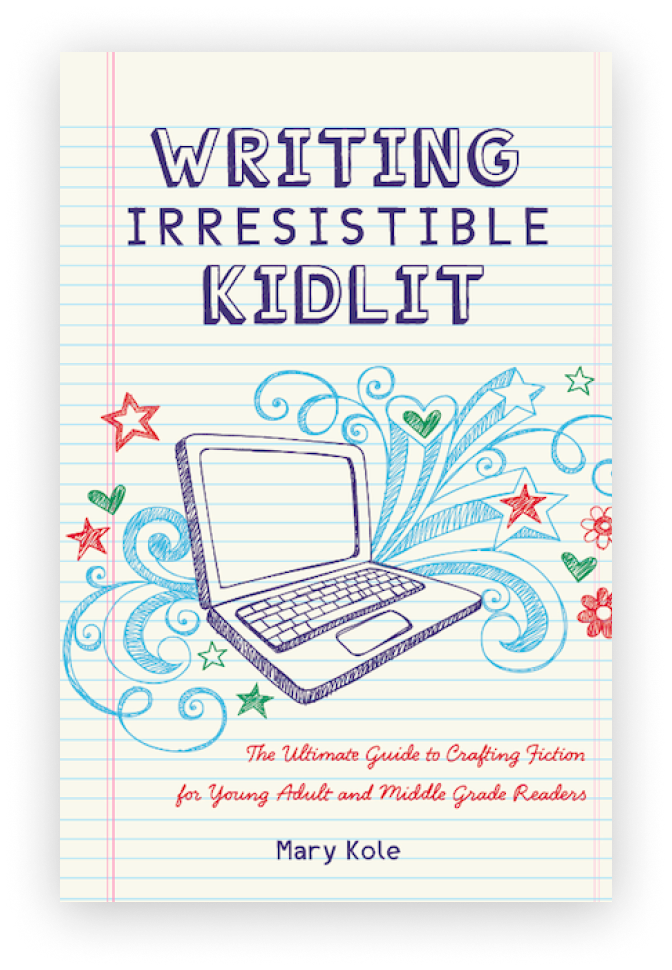Adding Writing Credits to Your Creative Resumé
By Mary Kole
Mary Kole is a former literary agent, freelance editor, writing teacher, author of Writing Irresistible Kidlit, and IP developer for major publishers, with over a decade in the publishing industry.
As a writer, you know that every little detail counts when it comes to submitting your manuscript to literary agents and traditional publishers. One of the details that might not seem like a big deal, but which can actually have a significant impact on your chances of getting published, is your writing credits, also called “clips.” In this article, I’ll explore what writing credits are, the importance of having them, how to get them, and how to correctly cite them in your query letter or author bio.
What Are Writing Credits?
Writing credits or “clips” are essentially a list of your previous published works. They include any short stories, essays, articles (even blog posts) or poems that you have published (either online or in print). If you have any producing or writing credits for plays, screenplays, or other forms of media, those can also be listed. You are basically building your author platform with each piece of writing that you’ll get out into the world, and writing credits show that you are serious about your craft.
Why Are Writing Credits Important?
Having writing credits not only shows that you have experience in the writing and publishing industry, but it also demonstrates to literary agents and publishing houses that you have a following and that your work has been deemed worthy by other publications and gatekeepers. It seems like a catch-22 that you need writing credits to get other writing credits, but the industry often works by consensus. If you have been validated already, then you are considered a better bet. If you have relevant writing credits to your name, or you are able to invest time in getting some, this can help create buzz around your manuscript and may increase your chances of getting a book deal.
How to Get Writing Credits
There are a variety of ways to get writing credits. One option is to start small, by submitting your work to literary journals or online publications. Many of these outlets accept submissions from unpublished authors and can provide an excellent platform for getting your name out there. Another option is to enter writing contests, which often offer publication as a prize. Lastly, don't underestimate the power of self-publishing. If you have a short story or novella that you're proud of, consider publishing it on Amazon or another self-publishing platform to get your name out there. Self-publishing was once considered to be a fringe activity, but the stigma has largely gone by the wayside. Self-publishing in this modern era communicates that you’re invested in learning your craft.
Citing Writing Credits Correctly
When citing your writing credits in your manuscript submission, it's important to do so correctly. Here are a few tips:
Start with your most recent publication or most prominent writing credits and work backwards
Include the title of the publication and the date (month and year are okay) it was published
If possible, include a link to the publication, especially relevant for online sources
If you have multiple publications in the same publication, list the most recent, most prominent, or most relevant to the book idea that you’re currently submitting
Common Mistakes Writers Make About Writing Credits
One of the most common mistakes writers make when citing their writing credits is not being thorough enough or not including all of the information detailed above. Be sure to include all relevant information and to double-check your citations for accuracy. Another mistake is not including links to online publications, which can make it difficult for agents and publishers to easily access your work and double-check that you are, indeed, published where you say you are. (You’d never do this, but writers fake writing credits all the time, to the detriment of honest aspiring writers hoping to get their names out there.)
Should You Pursue Writing Credits or Your Book-Length Work?
If you're just starting out as a writer, it's a great idea to pursue writing credits alongside a book-length work like a novel or memoir manuscript. This can help build your brand and create buzz around your writing. If you're more established, or if you're in the process of writing a book-length work, it may be wise to focus your energy on that instead of scattering your attention to getting more writing credits. Ultimately, it's up to you to decide what the best use of your time and resources is.
Writing credits may seem like a small detail, but they can have a big impact on your chances of getting published. By understanding what writing credits are, how to get them, and how to cite them correctly, you'll be putting yourself in the best possible position to succeed. So start submitting your work today, and don't forget to add each new publication to your list of writing credits in the author bio section of your query letter or book proposal. Keeping up with this now will make manuscript submission easier down the road.

Click here to purchase Writing Irresistible Kidlit, my book on fiction craft for MG and YA novels, out from Writer's Digest Books. This will show you my writing craft philosophy and give you lots of valuable advice, including tips for the novel revision process and self-editing. There are over 35 example novels cited and discussed throughout. It’s a valuable resource for any writer’s toolkit.
Click here to purchase Irresistible Query Letters, my book on query letters, including over forty examples with comprehensive notes on each one. There’s a ton of submission advice, best practices, and insider information in these pages, and you’ll really enjoy seeing what other writers are doing in the slush.




